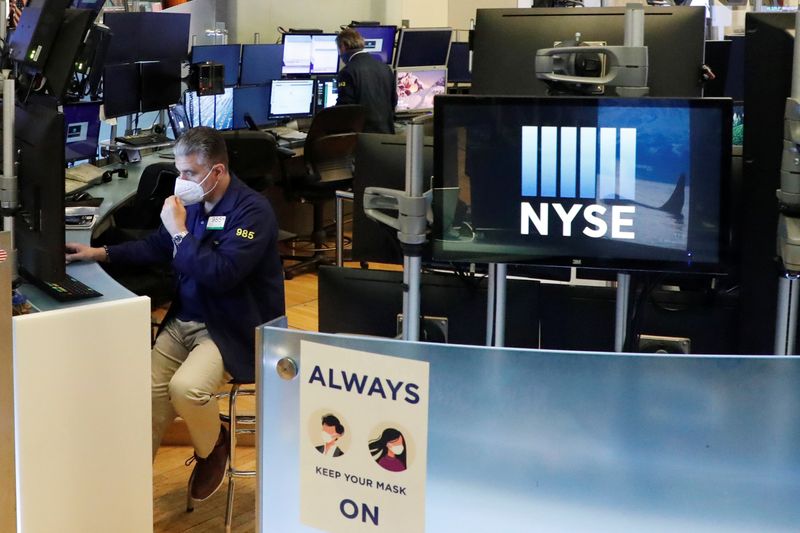By Lewis Krauskopf
NEW YORK (Reuters) - Berkshire Hathaway Inc 's (N:BRKa) new bet on the U.S. pharmaceutical industry signals hope for shares of large drug companies, which have lagged a broad market rally amid concern about efforts to rein in prescription drug prices.
Drug stocks largely outperformed on Tuesday, a day after Warren Buffett's conglomerate, long underweight in the healthcare sector, revealed $5.7 billion of new investments in Abbvie Inc (N:ABBV), Bristol-Myers Squibb Co (N:BMY), Merck & Co (N:MRK) and Pfizer Inc (N:PFE), whose vaccine has demonstrated effectiveness in late-stage studies against COVID-19.
“It’s a recognition of, 'Hey, there’s some value there,'” said Walter Todd, chief investment officer at Greenwood Capital, whose funds hold shares of Pfizer, Merck and Eli Lilly (N:LLY).
Pharma stocks also received a boost after the Nov. 3 U.S. elections made clear there would be no overwhelming Democratic sweep, an outcome some investors feared could prompt a major overhaul of drug pricing.
Still, many are reluctant to sound an all-clear on the industry, which is trading close to its biggest-ever valuation gap against the S&P 500 based on forward price-to-earnings ratios, according to Refinitiv Datastream.
Among the issues on investors' minds is whether Democrats can secure a slim margin in the U.S. Senate if their candidates win run-off races in Georgia scheduled for January, a result that could spark volatility throughout the healthcare sector.
Beyond that, pharmaceutical stocks continue to face pressure from concerns over lawmakers' efforts to bring down high drug prices, investors said.
"That is an area where you can quickly get to some sort of bipartisan agreement," said Les Funtleyder, a healthcare portfolio manager at E Squared Capital.
So far in 2020, the S&P 500 pharmaceutical industry index <.SPLRCCARG> has gained 0.6%, versus an 11.7% gain for the overall S&P 500 (SPX), and an 8.8% gain for the S&P 500 healthcare sector (SPXHC).
Shares of the two biggest pure-play pharma companies by market value, Merck and Pfizer, have fallen 10% and 3%, respectively, this year.
"Big pharma names have underperformed, and look cheap relative to historical valuations and the market overall," said Jim Shanahan, an Edward Jones analyst who covers Berkshire. "These are large, dominant companies in an industry that has demonstrated strong, long-term growth."
Investors say pharma stocks have also lagged because many top-selling products are slated to lose patent protection in the coming years, including Abbvie's blockbuster Humira.
“As you get within five years of patent expirations, people start to look and get more nervous about growth prospects,” said Marshall Gordon, senior healthcare analyst at Clearbridge Investments.
Another factor hurting pharma's performance, said Jared Holz, healthcare equity strategist at Jefferies (NYSE:JEF), is that the stock market currently is dominated on a given day by either a trade favoring big tech, stay-at-home stocks, or a trade favoring economically cyclical stocks.
Pharma does not fall into either of those categories, Holz said, so "they seem to underperform irrespective of what the broader markets are doing."

At the same time, he said, the stocks "are trading at such a meaningful discount on an absolute and relative basis that they are intriguing almost solely due to that."